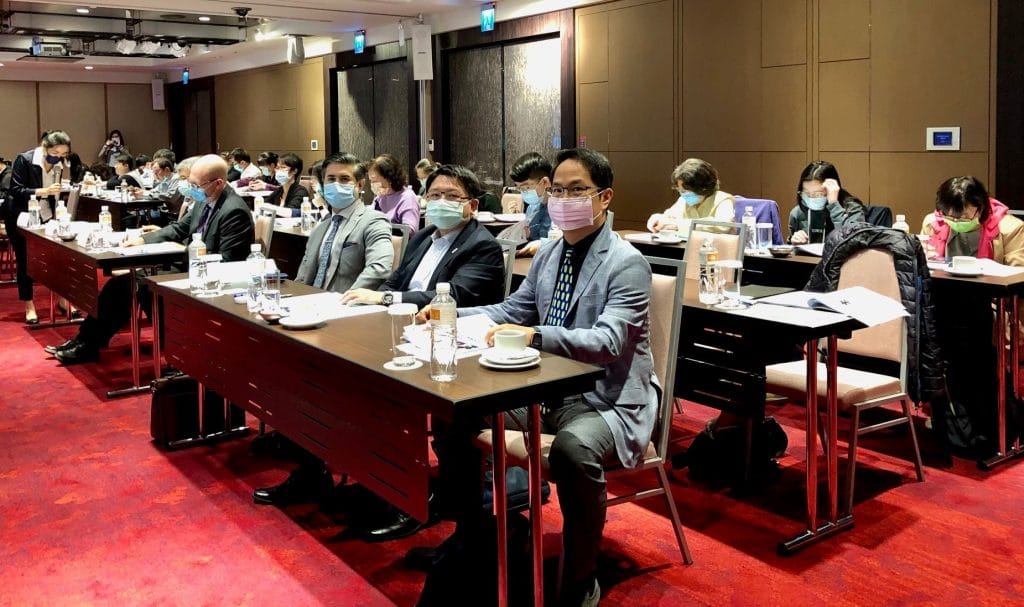It is vital U.S. corn growers follow protocols for genetically modified (GM) crops established by importing countries to ensure steady and continued trade flows. However, sometimes approval procedures can be slow, threatening to inhibit the process – a dynamic the U.S. Grains Council (USGC) aims to help avoid.
One of the Council’s key trade servicing efforts with long-time trading partner Taiwan is to keep an open line of communication between members of the U.S. agricultural supply chain and Taiwanese government biotech regulatory officials and scholars responsible for approving one or multiple biotech events.
Since 2008, Taiwan’s GM approval timelines have lengthened, due mainly to regulatory issues and personnel changes among regulatory officials and reviewing teams. To address that, the Council, with the help of industry partners in Taiwan and United States as well as Taiwanese government staff, co-sponsored the GM Food and Feed Assessment Symposium on Mar. 11 to discuss GM issues, provide updated information and create a better understanding among those in Taiwan who make GM approval decisions.
“Since the implementation of Taiwan stack regulation in 2008, the data requirements have increased significantly,” said Michael Lu, USGC director in Taiwan. “In contrast, other importing countries, like Japan, have significantly reduced regulatory requirements or even deregulated on breeding stacks based on science and long experience of no concern. Considering the long history of safe use of conventional breeding and long experience of the Taiwanese government in reviewing stacks without a single case indicating potential safety concerns, it is time to revisit the stack data simplification.”
GM traits – called events – can be applied one at a time or in multiples. Multiples are called “stacks” of traits, and sometimes these must get approved separately from the individual trait, which can take significant time.
Taiwan has a well-developed regulatory system for biotechnology, with Taiwan’s Food and Drug Administration (TFDA) responsible for the registration and approval of new biotech events for food in Taiwan. The Council of Agriculture (COA) is responsible for regulating biotech events for feed use.
This system allows stakeholders to easily identify who is working on biotech approvals and offer opportunities like attending the recent conference. The hybrid symposium – offered in cooperation with Taiwan Food Industry Research and Development Institute, the American Institute in Taiwan, the USDA’s Foreign Agricultural Service (FAS) in Taipei and the Council’s Taiwan Office – included more than 50 in-person attendees from the TFDA, COA and other regulators, food and feed committees and biotech academics. In-person presentations were supplemented with online discussions with GM experts from the United States, Australia, New Zealand and Japan.
“This meeting helped the decision makers in attendance get a better understanding of breeding stack protocol and science-based safety assessment and to further consider stack simplification so the overall timeline for approval issuance can be reduced,” Lu said.
In the 2020 calendar year, Taiwan approved four new GM events, including one corn event, bringing the total of approved corn events to 80. No shipments of U.S. corn were rejected or delayed due to concerns about biotech events in 2020.
Learn more about the Council’s work in Taiwan.
About The U.S. Grains Council
The U.S. Grains Council develops export markets for U.S. barley, corn, sorghum and related products including distiller’s dried grains with solubles (DDGS) and ethanol. With full-time presence in 28 locations, the Council operates programs in more than 50 countries and the European Union. The Council believes exports are vital to global economic development and to U.S. agriculture’s profitability. Detailed information about the Council and its programs is online at www.grains.org.

